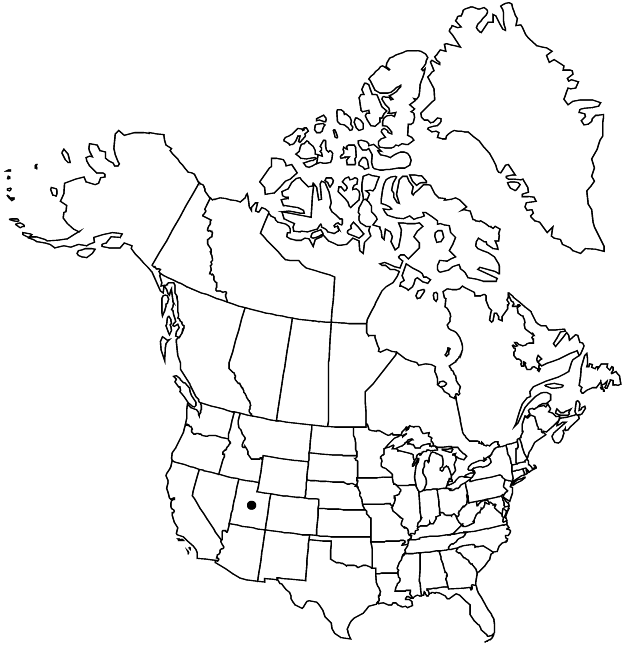Difference between revisions of "Eriogonum mitophyllum"
Phytologia 86: 140. 2004.
FNA>Volume Importer |
imported>Volume Importer |
||
| (One intermediate revision by one other user not shown) | |||
| Line 47: | Line 47: | ||
|publication year=2004 | |publication year=2004 | ||
|special status= | |special status= | ||
| − | |source xml=https:// | + | |source xml=https://bitbucket.org/aafc-mbb/fna-data-curation/src/2e0870ddd59836b60bcf96646a41e87ea5a5943a/coarse_grained_fna_xml/V5/V5_517.xml |
|subfamily=Polygonaceae subfam. Eriogonoideae | |subfamily=Polygonaceae subfam. Eriogonoideae | ||
|genus=Eriogonum | |genus=Eriogonum | ||
Latest revision as of 22:11, 5 November 2020
Herbs, erect, not scapose, (1.5–)2–3.5 × 0.5–1(–1.5) dm, glabrous, light gray to green. Stems spreading, without persistent leaf bases, up to 1/5 height of plant; caudex stems compact; aerial flowering stems erect, slender, solid, not fistulose, 1–2 dm, glabrous. Leaves basal, 1 per node; petiole 0.05–0.1 cm, glabrous; blade linear, 1.5–6 × 0.05–0.1 cm, sparsely floccose and green abaxially, glabrous and green adaxially, margins revolute. Inflorescences narrowly cymose, 0.5–1.5 × 0.2–0.8 dm; branches dichotomous, glabrous; bracts 3, scalelike, elongate-triangular, 1–4.5 mm. Peduncles absent. Involucres 1 per node, turbinate, 2.5–4.5 × 1.5–2.5(–3) mm, glabrous; teeth 5, erect, 0.5–0.8 mm. Flowers (2–)2.5–4 mm; perianth pale or greenish yellow, rarely white, glabrous; tepals connate proximal 1/3–1/2, monomorphic, oblong; stamens exserted, 2.5–4 mm; filaments glabrous or minutely pubescent. Achenes light brown, 2.5–3.5(–4) mm, glabrous.
Phenology: Flowering Jul–Sep.
Habitat: Clay flats and slopes, saltbush communities, juniper woodlands
Elevation: 1700-1800 m
Discussion
Eriogonum mitophyllum is known only from the Arapien Shale badlands above Lost Creek northeast of Sigurd, Sevier County. It is allied to E. ostlundii, but differs in its linear leaf blades, narrow, strict inflorescences with di- and trichotomous, U-shaped branches, and longer, pale yellow flowers. The leaf blades are threadlike and the narrowest of any species in the genus.
Selected References
None.
